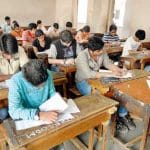Constitutional Arrangements
- In case of disputes relating to waters, Article 262 provides:
- Parliament may by law provide for the adjudication of any dispute or complaint with respect to the use, distribution or control of the waters of, or in, any inter-state river or river valley.
- Notwithstanding anything in this Constitution, Parliament may, by law, provide that neither the Supreme Court nor any other court shall exercise jurisdiction in respect of any such dispute or complaints as is referred to in Clause (1).
Inter-State River Water Disputes Act, 1956
- As per the Act, when a water dispute arises among two or more states, the central government receives a request under section 3 of the Act from any of the concerned states.
- The Act requires that in case of a dispute between Indian states over sharing of river water, the first priority of the government at the Centre is to make them arrive at a negotiated settlement.
- When all dialogues fail, these disputes are referred to redressal mechanisms like tribunals.
- The Central Government is then supposed to constitute a Water Dispute Tribunal within a period not exceeding one year from the receipt of such request.
- The inter state water disputes neither fall under the Supreme Court’s or any other court’s jurisdiction and can only be adjudicated by temporary and ad-hoc interstate water dispute tribunals.
- At the moment, there are multiple tribunals in place to resolve interstate water disputes.
- But, the National Water Policy 2012 proposed setting up a permanent tribunal to replace all of them.
- The various water disputes tribunals are:
- Krishna (1969)- Maharashtra, Andhra Pradesh and Karnataka
- Godavari (1969)- Maharashtra, Andhra Pradesh and Karnataka, Madhya Pradesh and Odisha
- Narmada (1969)- Rajasthan, Madhya Pradesh, Gujarat and Maharashtra
- Ravi and Beas (1986)- Punjab, Haryana and Rajasthan
- Cauvery ( 1990)- Kerala, Karnataka, Tamil Nadu, Puducherry
- Krishna II ( 2004)- Maharashtra, Andhra Pradesh and Karnataka
- Mandovi/ Mahadayi ( 2010)- Goa, Karnataka and Maharashtra
- Vansadhara (2010)- Andhra Pradesh and Odisha
- The Tribunal shall consist of a Chairman and two other members nominated in this behalf by the Chief Justice of India from among persons who at the time of such nomination are judges of the Supreme Court or of a High Court.
- The decision of the tribunal shall be final and binding on the parties to the dispute. It shall have the same force as an order or decree of the Supreme Court.
- The Act has been amended in 2002 in consultation with the State Governments, whereby adjudication of water disputes by the Tribunals was made time bound.
Mahadayi/ Mandovi River Dispute (In news)
- Concerned states- Maharashtra, Karnataka and Goa
- It is a 30 year old dispute over sharing of river water.
- The 77 Km long river flows into Goa from Karnataka and empties into the Arabian Sea. 52 Km of the river stretch lies in Goa. (which means nearly 75% of its catchment area lies in Goa).
- The Karnataka Government in 2002 decided to implement the Kalasa-Banduri (two tributaries of Mahadayi) drinking water project.
- This project aims at diverting 7.56 TMC of water from the Mahadayi to the Malaprabha river in Karnataka to address drinking water woes in three districts of the state.
- Goa requested the Centre in 2002 to constitute a Tribunal to assess the available utilizable water resources in the basin at various points and allocation of this water to the three basin states keeping in view priority of the use of water.
- Goa also argued that the drinking water project would hurt the ecology of the state as the river supports the fragile ecosystem of Western Ghats lying within the territory of the state.
- An inter-state meeting was convened by the Central Government in 2006 taking on board the Chief Ministers of the three states. (as per the provisions of the act for a negotiated settlement)
- But the state of Goa was not ready to pursue the negotiation process and wanted the referral of the dispute to a Tribunal.
- As a result, the Mahadayi Water Dispute Tribunal was set up by the Central Government in 2010.
- The Tribunal in an interim order in July,2016 rejected Karnataka’s demand for 7.56 TMC of water which led to widespread protests.











